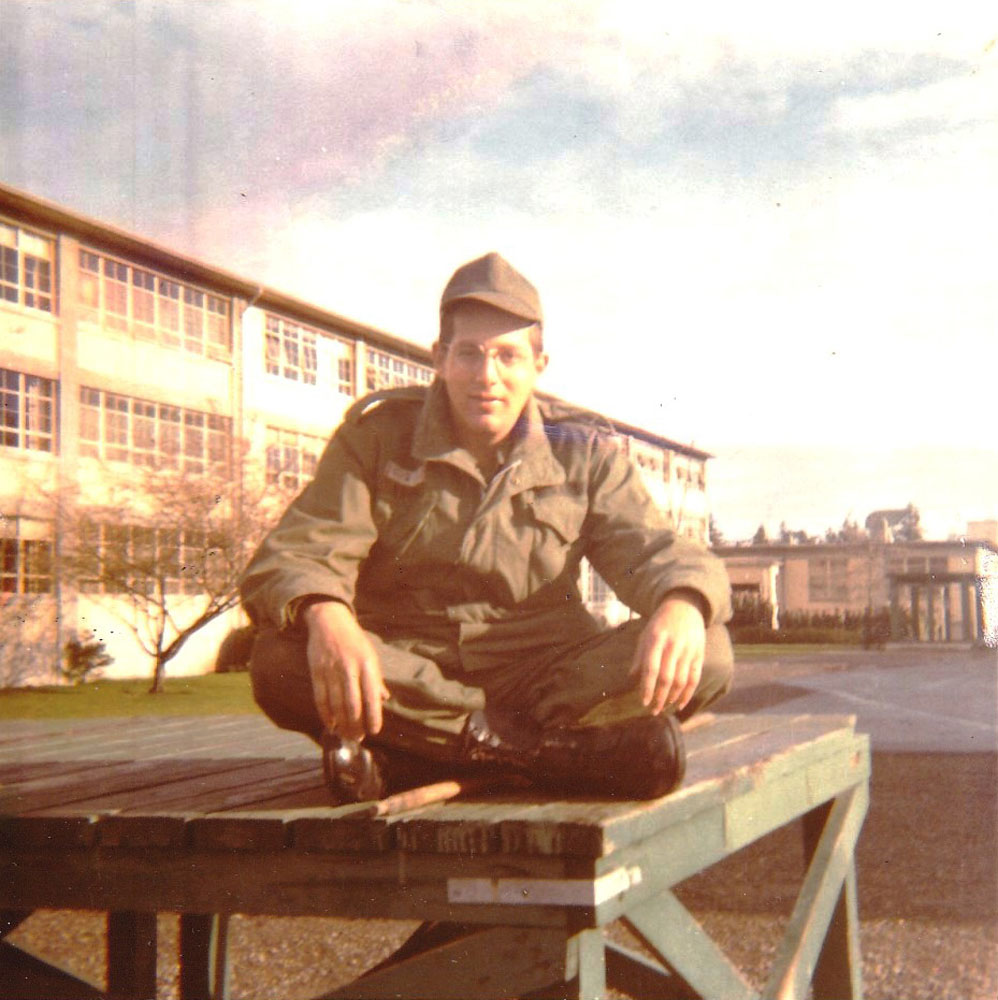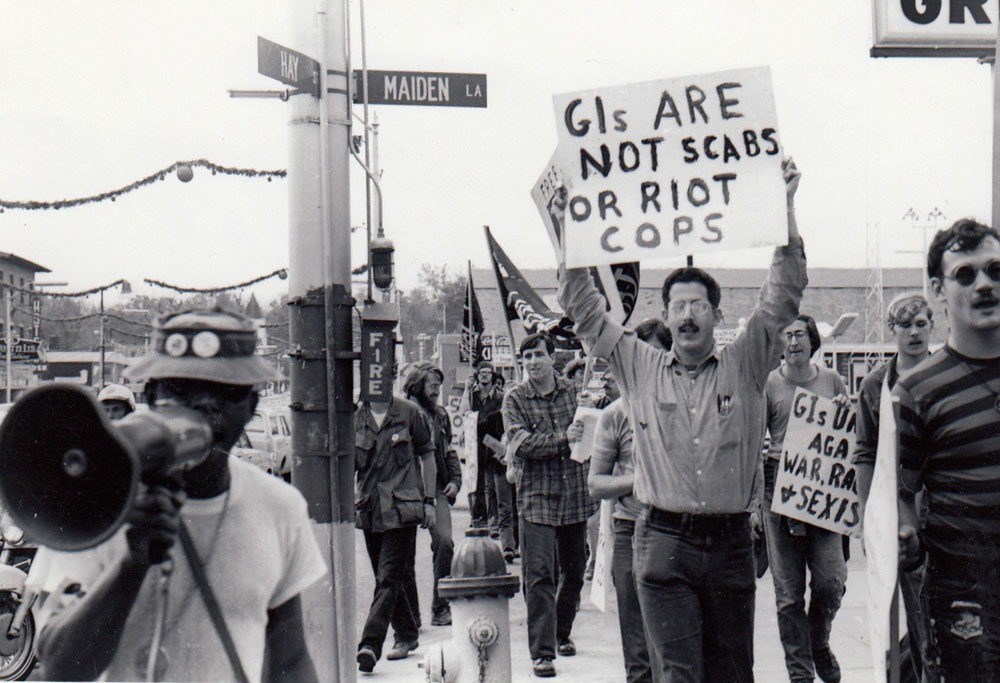 Download PDF of this full issue: v52n1.pdf (24.3 MB)
Download PDF of this full issue: v52n1.pdf (24.3 MB)From Vietnam Veterans Against the War, http://www.vvaw.org/veteran/article/?id=4067
 Download PDF of this full issue: v52n1.pdf (24.3 MB) Download PDF of this full issue: v52n1.pdf (24.3 MB) |
For veterans of the US war in Vietnam, that first return trip, taken soon after the end of the conflict or many years later, is commonly an intensely emotional experience. Memories, some suppressed, often come out with a shivering feeling, mental as well as physical, as the sites and people encountered bring back times gone by. Most often this is a healing experience and it is typically unforgettable.
For this veteran, who had never before set foot in Vietnam, that first trip was also a return, a return filled with intense emotion and recalled memories. It was a deeply satisfying experience that led to a long-sought sense of closure similar, I suspect, to that felt by returning veterans who had physically been there before.
No, I had not been to Vietnam in the physical sense, but for ten years Vietnam occupied a significant part of my consciousness during my coming of age formative years. I followed the war news intensely and passionately participated in the anti-war movement and its endless debates about strategy and tactics to end the war. So my first arrival in Vietnam had a sense of coming home to a place I had been emotionally for a long time, indeed a kind of return.
As a teenager, I was drawn into the US anti-war movement in the early years of US intervention. In 1964 I joined one of the first public demonstrations against the war, seeing with my politically virgin eyes the spectrum of the American Left. I was deeply moved by the early war resistance of Special Forces Sergeant Donald Duncan, a counter-insurgency expert in South Vietnam, whose picture in full Green Beret uniform appeared on the cover of the February 1966 Ramparts magazine with the intrepid title "I Quit!"
Later, the actions of other war resisters in the military, including Howard Levy, Brian Willson, Gerry Condon, the Fort Hood Three, and others, convinced me that there was a special and persuasive legitimacy in the words and actions of soldiers and veterans who spoke out and resisted war.
I was active in the civilian anti-war movement in several organizations. In one of them, in 1970, I was national co-chair of the Committee of Returned Volunteers (CRV) a group of 1,000 former Peace Corps Volunteers who not only denounced the Vietnam War but also had moved to a position of Solidarity with Vietnam! In 1968 and 1969 the former chairpersons of CRV had been invited on solidarity visits to Vietnam. So I kept in my heart a private hope that my day would come and I too would soon see the land that elicited such passion in so many of my generation.
Unfortunately, that hope soon died! CRV gracefully disbanded in 1971, rightfully or wrongly having concluded that the Peace Corps itself was rendered irrelevant by the monstrous US genocidal war in Vietnam. And with CRV gone, I was out of a job! So I followed another path that also was in my mind and my heart, enlisting in the US Army (despite my 4F status for draft resistance) for the sole purpose of spreading the anti-war message from within.
The story of those next three years 1971-73 is told elsewhere: (https://youtu.be/3wxc9-Nk52U). Significantly, by luck, fate, or design, the US Army did NOT send me to Vietnam. My overseas tour was in West Germany.
In 1974, discharged from the Army, I rejoined the civilian anti-war movement, which by then had declined in numbers, as the Paris Peace Accords had been signed and the US was indeed withdrawing from Vietnam. It was time to move on. I returned to school, studying Engineering at the University of Illinois.
That was a fortuitous choice. With the emerging technology boom, I was able to find a good job and keep it for many years. I worked at AT&T doing telecommunications software development, using the new technologies to bring basic telephone service to the developing world and lower its cost in the developed world. Outside of work, I kept involved in a variety of peace and solidarity work.
Lo and behold, in the mid 1990s with US-Vietnam relations normalized, truly good fortune struck!. AT&T was negotiating a project with VNPT, the national telephone company in Vietnam. There was a need for a couple of AT&T engineers to go to Ho Chi Minh City for a week to work with Vietnamese telecom engineers to establish some of the technical details of how our equipment would interconnect.
Needless to say, I calmly volunteered, trying hard to hide the intense raging passion in my heart of hearts to be selected. Blessed with a coworker Bill, a veteran who had been a US Army MP in Saigon during the war, the two of us were chosen.
Loaded down with the technical equipment needed to do our work, we flew from Chicago to Ho Chi Minh City with a brief layover in Japan. Getting through customs and passport formalities was a breeze once we showed our VNPT and AT&T credentials. Immediately, the reality of just being in Vietnam, walking the streets, recognizing scenes I knew only from books, movies, television, and photos, was mind-boggling. Ain't peace wonderful!
We stayed in a hotel in the center of the city and went to work every day at the phone company. Our Vietnamese counterparts were very friendly young well-trained engineers, whose technical knowledge of their equipment was remarkable. Fortunately, we interfaced only with technical folks, leaving the business protocol meetings to others. Having worked with telecom engineers in many countries, we were duly impressed at the Vietnamese engineers' skills and indeed thankful because it made our work together go so smoothly.
But our ability to relate to them in terms of our coming of age during the US war in Vietnam was limited. This was 1996. We two Americans had experienced the Vietnam War era as 20-plus-year-olds; they had been infants. The "American War" was history to them, more part of their parents' generation than their own. But we found common ground to chat with them about music, sports, and international pop culture. Ain't peace wonderful!
Since the work went so smoothly, we had the time to explore Ho Chi Minh City. High on our agenda was to find the US military base in the city where Bill had been stationed 25 years prior. We explored maps and tried hard to extract what we could from Bill's memory. We took taxis and asked people in the streets about buildings and other visual clues that Bill could recall. Most often, once we explained that Bill had been stationed there in the US Army, people were remarkably friendly and anxious to be helpful. Ain't peace wonderful!
Ultimately we found a place that Bill was fairly certain was where he had been stationed. As is ironically appropriate, the former military base was now a schoolhouse and the surrounding area a kid's playground! Ain't peace wonderful!
We also explored the "Museum of War Remnants" where we saw some captured US military equipment and a photo exhibit of US anti-war protesters and draft card burners. Bill wanted to eat lunch at the Ho Chi Minh McDonalds and get their menu as a souvenir, but I just couldn't! So on that occasion, we briefly parted ways.
On the last day before flying home, we went out to the Cu-Chi Tunnels at some distance from the city. That's where Vietnamese fighters hid in a network of tunnels literally underneath a US military base. It is now a tourist spot where you can crawl through one of the tunnels for a few yards to feel what it was like. It reminded me of the claustrophobia of a full-body MRI scan at a hospital. Yet the tunnels used by tourists had been widened to fit the larger body sizes of foreign visitors.
On the way back, we hit the tourist souvenir shops where I bought a Vietnamese doll for my daughter and a six-pack of Vietnamese beer for my comrades in Chicago VVAW. Ain't peace wonderful!
Andy Berman is a life long peace and justice activist. He was a Vietnam war resister inside the US Army 1971-73. He is currently active in the SOVA (Save Our VA) movement in Minneapolis.

|
| Andy Berman during Basic Training at Ft. Lewis, 1971. |

|
| Andy Berman (holding sign) at Fort Bragg, GIs Not Scabs demo, 1971. |